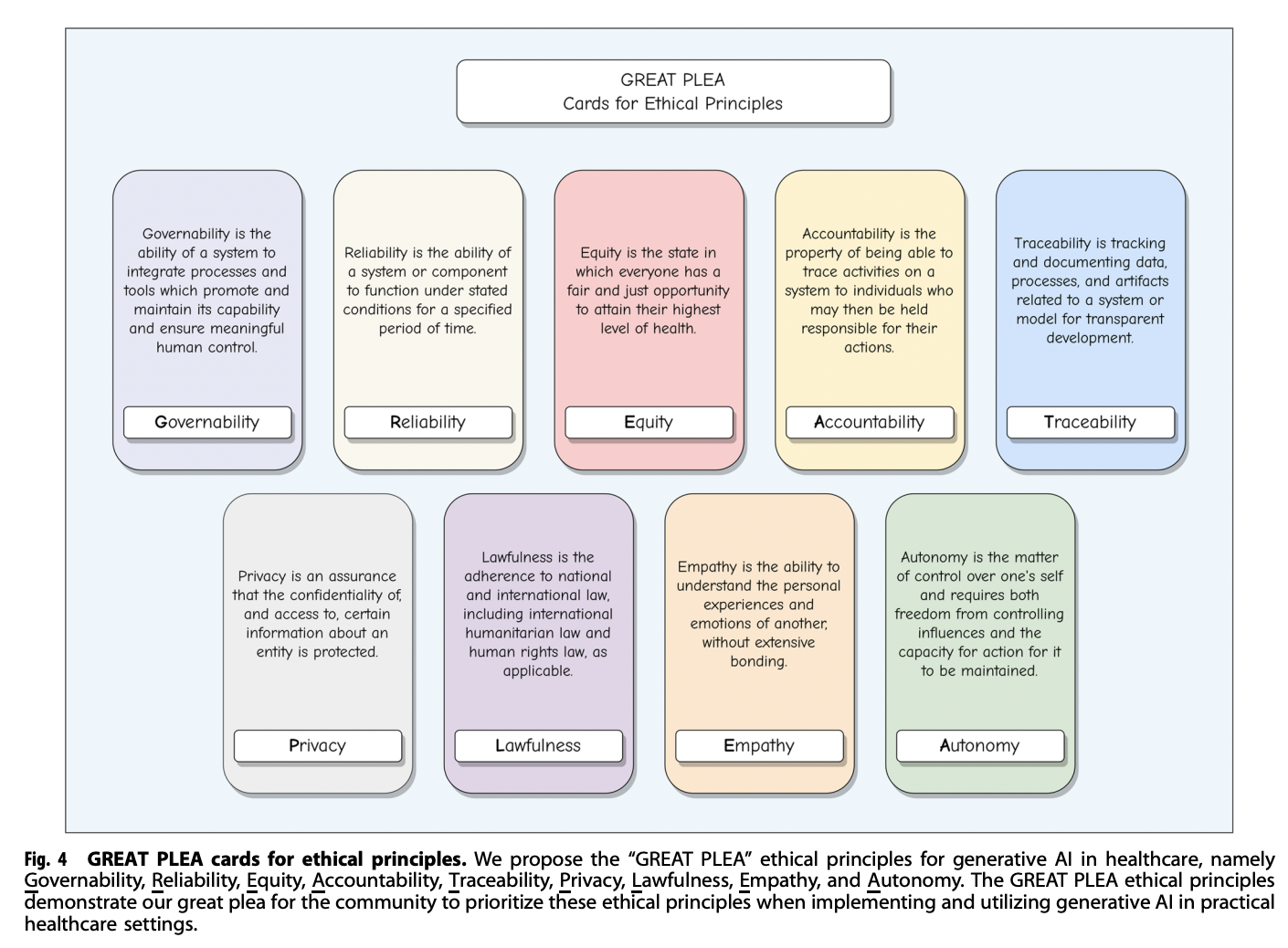A group of researchers from various institutions, including the University of Pittsburgh, Weill Cornell Medicine, Telemedicine & Advanced Technology Research Center, Uniformed Services University, Brooke Army Medical Center, and University of Pittsburgh Medical Center have examined the ethical principles of generative AI in healthcare, particularly focusing on transparency, bias modeling, and ethical decision-making concerns. They have proposed a framework called GREAT PLEA principles, which stands for Governability, Reliability, Equity, Accountability, Traceability, Privacy, Lawfulness, Empathy, and Eutonomy. The framework advocates for the proactive adoption and expansion of these principles in healthcare to address ethical dilemmas that may arise from the integration of generative AI.
The research draws parallels between military and medical service, emphasizing the shared need for quick decision-making. It explores the transformative potential of generative AI in healthcare, acknowledging ethical concerns like transparency and bias. It introduces a practical framework inspired by military ethics. It aims to proactively address ethical challenges in integrating generative AI into healthcare, emphasizing governance, fairness, and empathy in decision-making processes.
The growing role of AI in various fields, including the military and healthcare, highlights the need for ethical considerations. It notes the U.S. Department of Defense and NATO’s disclosure of military AI ethics. Exploring AI’s impact on healthcare, including potential clinical department replacements, it focuses on generative AI’s transformative potential. It highlights the lack of specific ethical principles for generative AI in healthcare. The convergence of AI priorities in the military and healthcare sectors is emphasized.
The study proposes ethical principles inspired by the military for generative AI in healthcare. It contrasts ethical concerns in the military and healthcare sectors to create the GREAT PLEA principles, addressing issues like governability, reliability, equity, accountability, traceability, privacy, lawfulness, empathy, and autonomy. Emphasizing transparency and documentation, the researchers stress the importance of educating end users about generative AI systems in healthcare, ensuring awareness of capabilities and limitations for optimizing trust and ethical use. The research team also stresses the moral significance of enhancing human creativity, productivity, and problem-solving in healthcare while improving patient care.
AI|AI|AI|AI|AI|AI|AI|AI|AI|AI|AI|AI|AI|AI|AI|AI|AI|AI|AI|AI|AI|AI|AI|AI|AI|AI|
AI|AI|AI|AI|AI|AI|AI|AI|AI|AI|AI|AI|AI|AI|AI|AI|AI|AI|AI|AI|AI|AI|AI|AI|AI|AI|
AI|AI|AI|AI|AI|AI|AI|AI|AI|AI|AI|AI|AI|AI|AI|AI|AI|AI|AI|AI|AI|AI|AI|AI|AI|AI|
AI|AI|AI|AI|AI|AI|AI|AI|AI|AI|AI|AI|AI|AI|AI|AI|AI|AI|AI|AI|AI|AI|AI|AI|AI|AI|
AI|AI|AI|AI|AI|AI|AI
To sum up, the study suggests a set of ethical principles named GREAT PLEA, inspired by the military, to incorporate generative AI into healthcare. The framework highlights the significance of transparency, documentation, and traceability to enhance trust and maintain ethical standards in healthcare practice. Educating end-users and proactively tackling ethical challenges in generative AI to improve patient care is essential.
Sana Hassan, a consulting intern at Marktechpost and dual-degree student at IIT Madras, is passionate about applying technology and AI to address real-world challenges. With a keen interest in solving practical problems, he brings a fresh perspective to the intersection of AI and real-life solutions.









